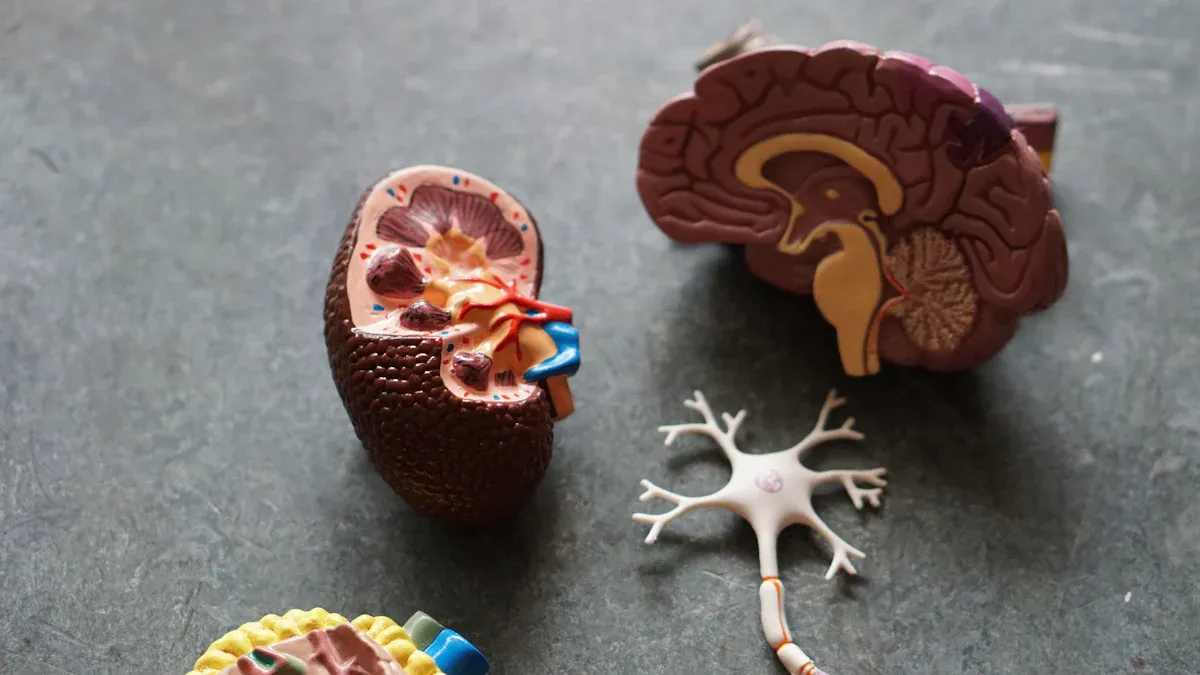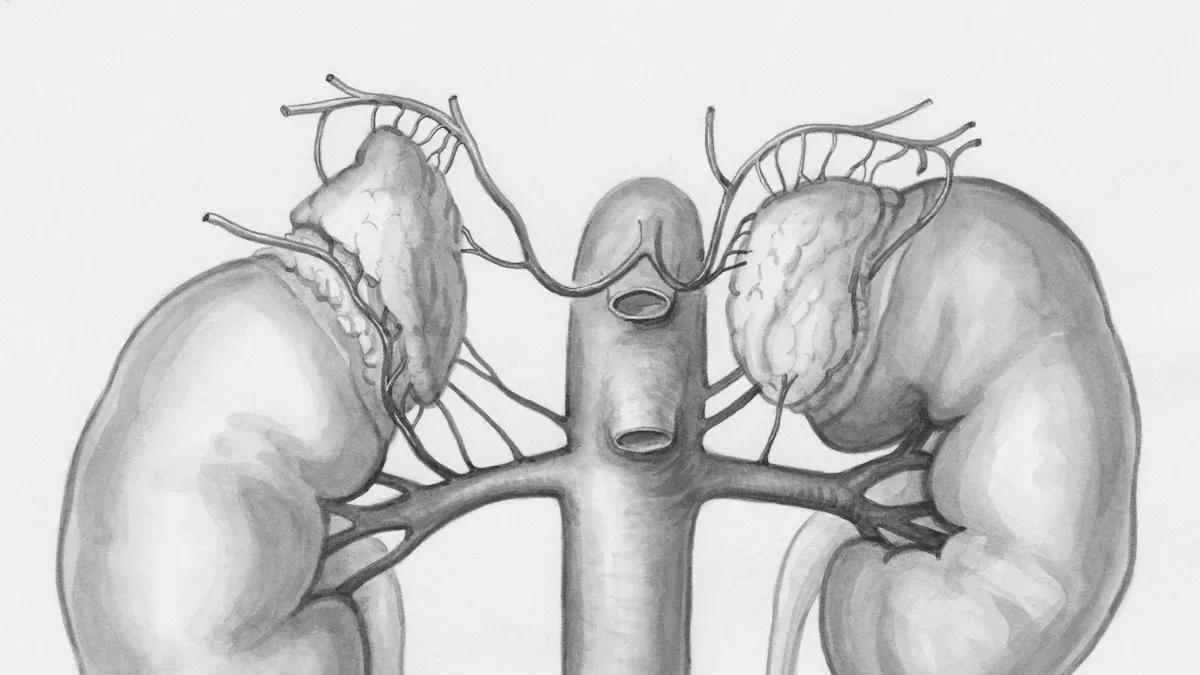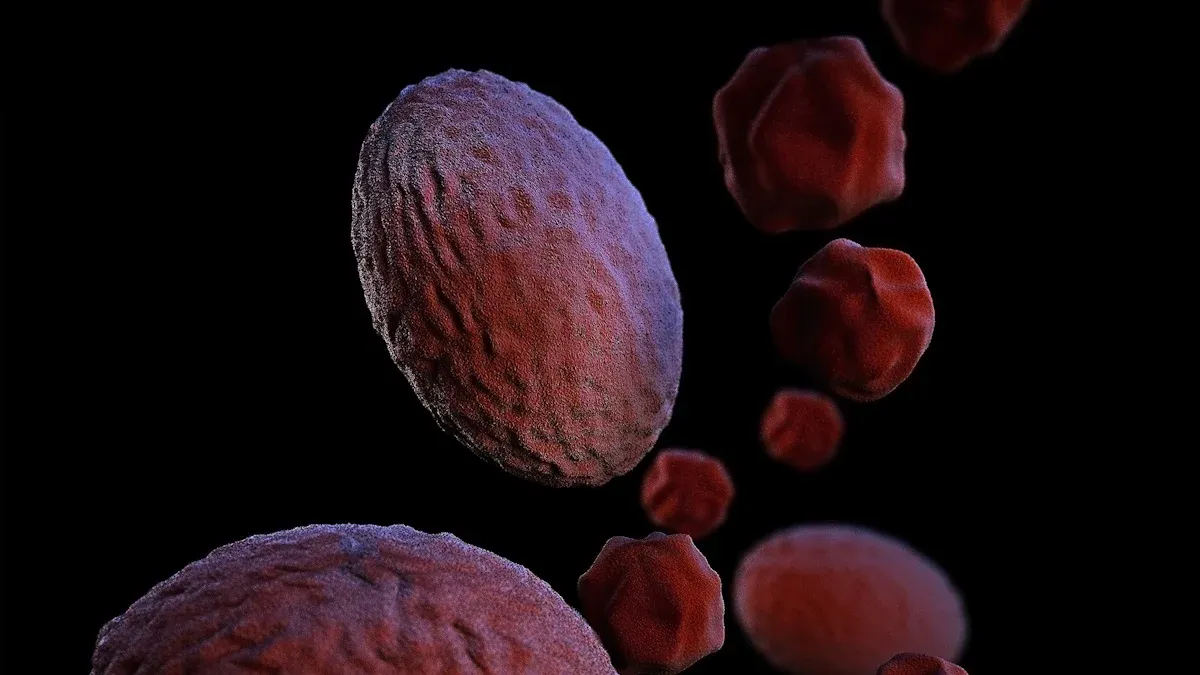What Are the Symptoms of Kidney Cancer

Kidney cancer often presents with symptoms that may seem minor at first but can indicate serious health concerns. You might notice blood in your urine, persistent pain in your side, or unexplained weight loss. Early detection plays a critical role in improving survival rates. For instance, localized kidney cancer has a 93% five-year survival rate, while distant-stage cases drop to just 18%.
Globally, kidney cancer remains a growing health issue, with over 400,000 new cases diagnosed annually. Addressing these symptoms early can make a significant difference in treatment outcomes and overall health.
Key Takeaways
Seeing blood in your pee can be an early sign of kidney cancer. If this happens, talk to a doctor quickly.
Pain that doesn’t go away in your side or lower back might mean kidney cancer. Don’t ignore it; see a doctor.
Losing weight without trying and feeling very tired could be signs of kidney cancer. Notice these changes and get checked if they happen.
Watch for unusual things like swollen legs or a lump in your belly. Writing these down can help doctors figure out what’s wrong.
If kidney cancer runs in your family, ask your doctor about tests. Finding it early can make treatment work better.
Common Symptoms of Kidney Cancer

Blood in the Urine
One of the most common symptoms of kidney cancer is blood in the urine, also known as hematuria. You might notice your urine turning pink, red, or even brown. This symptom often appears without pain, making it easy to overlook. Studies show that blood in the urine is a frequent early sign of kidney cancer, highlighting its importance in early detection. However, this symptom can also result from other conditions like urinary tract infections or kidney stones. If you notice this change, consult a healthcare provider promptly to rule out serious issues.
Persistent Pain in the Side or Lower Back
Pain in your side or lower back, especially on one side, can signal kidney cancer. This discomfort may feel dull or sharp and doesn’t usually result from an injury. As the tumor grows, it can press against surrounding tissues, causing persistent pain. You might also feel pressure or tenderness in the affected area. While back pain is common and often linked to other causes, ongoing or unexplained pain should never be ignored. Seeking medical advice can help identify the root cause and ensure timely treatment.
Unexplained Weight Loss
Losing weight without trying can be another warning sign of kidney cancer. This symptom often occurs as the disease progresses. Tumors can alter your body’s metabolism, leading to a loss of appetite and rapid weight reduction. You might also experience fatigue or weakness alongside weight loss. While many factors can cause unintentional weight loss, it’s essential to pay attention if this happens to you. Early evaluation can help detect kidney cancer or other underlying conditions.
Fatigue and Weakness
Feeling tired all the time, even after a good night's sleep, could be a sign of kidney cancer. This type of fatigue often feels different from regular tiredness. You might notice a lack of energy that makes daily tasks feel overwhelming. Weakness in your muscles can also accompany this symptom, making it harder to stay active.
Kidney cancer can cause fatigue by disrupting your body's normal functions. Tumors may interfere with the production of red blood cells, leading to anemia. When your body has fewer red blood cells, it struggles to deliver oxygen to your tissues. This lack of oxygen can leave you feeling drained and weak.
Tip: If you experience persistent fatigue or weakness that doesn't improve with rest, consult a healthcare provider. Early evaluation can help identify the cause and guide you toward the right treatment.
Fever Without Infection
A fever that appears without any signs of infection might also point to kidney cancer. These fevers often come and go, and they may not respond to typical fever-reducing medications. You might feel chills or sweats along with the fever, which can disrupt your daily routine.
This symptom occurs because kidney cancer can trigger an immune response in your body. Tumors sometimes release substances that cause inflammation, leading to a rise in body temperature. While fevers are common with infections, a persistent or unexplained fever should not be ignored.
Note: Keep track of your symptoms, including how often the fever occurs and any other changes in your health. Sharing this information with your doctor can help in diagnosing the underlying issue.
Less Common Symptoms of Kidney Cancer

Swelling in the Legs or Ankles
Swelling in your legs or ankles can sometimes indicate kidney cancer. This occurs when the tumor affects your kidney's ability to regulate fluid balance. As a result, fluid may build up in your lower extremities, causing noticeable puffiness. You might also feel discomfort or heaviness in the affected areas. While swelling can result from other conditions like heart or liver issues, persistent or unexplained swelling should prompt you to seek medical advice.
Tip: Keep track of any swelling, including when it occurs and whether it worsens over time. Sharing these details with your doctor can help identify the underlying cause.
A Lump or Mass in the Abdomen
You might notice a lump or mass in your abdomen as kidney cancer progresses. This lump often feels firm and may not cause pain initially. It develops as the tumor grows and becomes large enough to be felt through the skin. Sometimes, this symptom is accompanied by a dull ache or pressure in the abdomen. While not all abdominal lumps are cancerous, you should never ignore one. Early evaluation can help determine if it’s related to kidney cancer or another condition.
High Blood Pressure or Anemia
Kidney cancer can lead to high blood pressure or anemia due to the kidney's role in regulating these functions. Your kidneys produce hormones that control blood pressure and stimulate red blood cell production. When a tumor disrupts this process, you might experience elevated blood pressure or a drop in red blood cells, leading to anemia. Symptoms of anemia include fatigue, weakness, and pale skin. High blood pressure, on the other hand, may not show symptoms but can cause long-term damage if left untreated.
Note: If you have high blood pressure or anemia without a clear cause, consult your healthcare provider. These could be early signs of kidney cancer or other kidney-related issues.
Why Kidney Cancer Symptoms Occur
Tumor Growth and Pressure
Kidney cancer symptoms often arise due to the physical effects of tumor growth. As the tumor enlarges, it can press against nearby organs, tissues, or blood vessels. This pressure may cause pain in your side or lower back. You might also notice swelling in your abdomen or legs. Tumors can block the normal flow of urine, leading to discomfort or even infections. These physical changes often explain why symptoms like persistent pain or visible lumps develop.
Hormonal Changes
Your kidneys play a key role in producing hormones that regulate blood pressure and red blood cell production. When kidney cancer disrupts this process, it can lead to hormonal imbalances. These changes might cause high blood pressure or anemia. Anemia often results in fatigue, weakness, or pale skin. High blood pressure, on the other hand, may not show symptoms immediately but can damage your body over time. If you experience these issues without a clear cause, they could be linked to hormonal disruptions caused by kidney cancer.
Metastasis to Other Organs
In advanced stages, kidney cancer can spread to other parts of your body, a process known as metastasis. This spread often leads to new symptoms depending on the organ affected. For example, if cancer reaches your lungs, you might experience coughing or chest pain. When it spreads to your liver, symptoms like jaundice or nausea may appear. The table below highlights common symptoms based on the organ affected:
Organ Affected | Symptoms |
|---|---|
Lungs | Cough, shortness of breath, chest pain |
Liver | Appetite loss, weight loss, jaundice, nausea |
Bones | Bone pain, increased fracture risk |
Brain | Headaches, seizures, numbness, weakness |
Metastasis often worsens your overall health and introduces new challenges. Recognizing these symptoms early can help guide treatment decisions.
When to See a Doctor for Kidney Cancer Symptoms
Persistent Symptoms
Certain symptoms that persist over time may indicate kidney cancer. You should pay attention to signs like blood in your urine, low back pain on one side, or a lump in your abdomen. These symptoms often develop gradually and may not seem alarming at first. However, ignoring them can delay diagnosis and treatment.
Other persistent symptoms include fatigue, loss of appetite, and unexplained weight loss. These changes might feel subtle but could signal underlying health issues. If you notice any of these symptoms lasting for weeks, consult a healthcare provider. Early detection increases the chances of effective treatment.
Tip: Keep a journal of your symptoms, noting when they started and how they change over time. This information can help your doctor make an accurate diagnosis.
Sudden or Severe Symptoms
Some symptoms appear suddenly or become severe, requiring immediate medical attention. For example, a fever that doesn’t respond to medication or severe pain in your side could indicate advanced kidney cancer. Sudden swelling in your legs or ankles might also suggest a problem with your kidneys.
Other warning signs include extreme fatigue or anemia, which can leave you feeling unusually weak. These symptoms often result from the tumor affecting your kidney’s ability to function properly. If you experience any of these issues, don’t wait to seek medical advice.
Note: Severe symptoms can escalate quickly. Acting promptly can prevent complications and improve your prognosis.
Family History or Risk Factors
A family history of kidney cancer increases your risk of developing the disease. If a sibling or parent has had renal cell carcinoma, your chances of being affected are higher. This may result from shared genetic factors or environmental exposures.
Risk Factor | Description |
|---|---|
Family History | Individuals with a strong family history of renal cell carcinoma (RCC) have a higher chance of developing the disease, especially if they have a sibling with kidney cancer. This may be due to shared genetic factors or environmental exposures. |
If you have a family history or other risk factors, such as smoking or obesity, discuss screening options with your doctor. While routine screening isn’t common, imaging tests like CT scans or ultrasounds can help detect kidney cancer early in high-risk individuals.
Reminder: Knowing your family’s medical history can guide you in taking preventive measures and seeking timely medical advice.
Recognizing kidney cancer symptoms early can save lives. Symptoms like blood in the urine or back pain often seem minor but may signal serious health issues. Misconceptions about these symptoms, such as confusing them with less severe conditions, often delay diagnosis. Early detection offers significant benefits:
Surgical techniques can remove tumors while preserving healthy kidney tissue.
Advanced treatments, like ablation, maintain long-term kidney function.
If you notice unusual symptoms, consult a healthcare provider immediately. Early action improves treatment outcomes and helps protect your overall health.
FAQ
What are the early warning signs of kidney cancer?
You might notice blood in your urine, persistent back or side pain, or unexplained weight loss. Fatigue and fever without infection can also occur. These symptoms often appear gradually, so paying attention to changes in your health is essential.
Can kidney cancer symptoms mimic other conditions?
Yes, symptoms like blood in the urine or back pain can resemble urinary tract infections or kidney stones. Fatigue and weight loss might also suggest other illnesses. If symptoms persist or worsen, consult your doctor for a proper diagnosis.
Is kidney cancer always painful?
No, kidney cancer doesn’t always cause pain, especially in its early stages. Symptoms like blood in the urine or a lump in the abdomen may appear without discomfort. Pain often develops as the tumor grows or spreads.
How can I differentiate kidney cancer symptoms from common issues?
Track your symptoms over time. Persistent or unexplained changes, such as blood in the urine or swelling in your legs, may indicate kidney cancer. If symptoms last for weeks or worsen, seek medical advice promptly.
Should I see a doctor if I have a family history of kidney cancer?
Yes, a family history increases your risk. Discuss your concerns with your doctor, especially if you notice symptoms like blood in the urine or back pain. Early screening can help detect kidney cancer in high-risk individuals.
---
ℹ️ Explore more: Read our Comprehensive Guide to All Known Cancer Types for symptoms, causes, and treatments.
See Also
Identifying Symptoms Associated With Appendix Cancer
Understanding Bladder Cancer: Symptoms and Contributing Factors
Exploring Endometrial Cancer: Key Symptoms to Recognize

